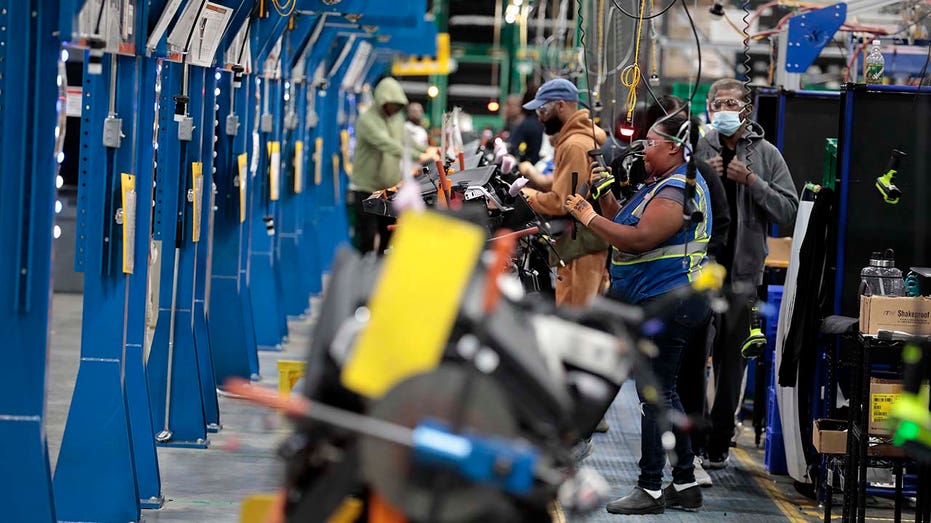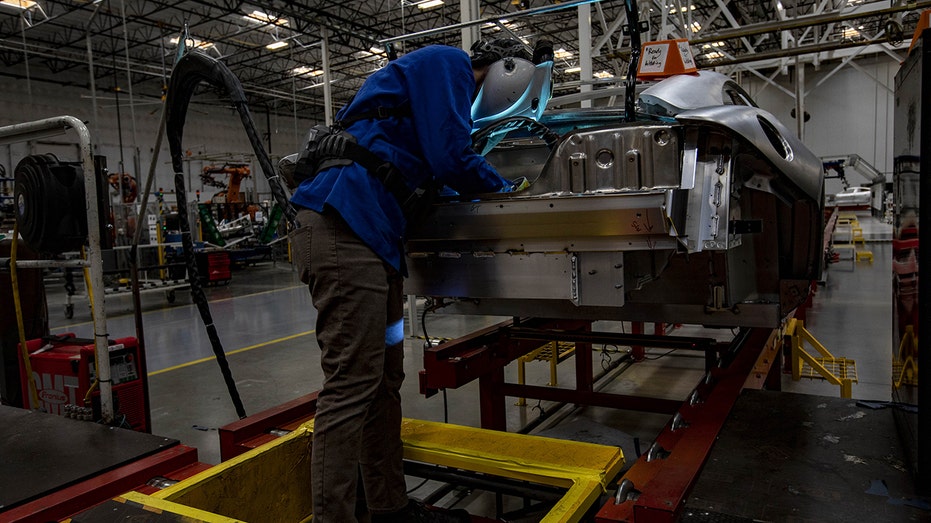Finance
AI threatens blue-collar jobs, too

Generative artificial intelligence (Gen AI) is sweeping across industries, and while it is seen as a great threat to many white-collar jobs, the technology’s rapid advance in the manufacturing industry shows blue-collar workers are at risk of being replaced, too.
Ed Watal, the founder and principal of IT strategy firm Intellibus, says AI is rapidly accelerating the fourth industrial revolution, and manufacturing is already being transformed through automation, predictive maintenance and quality control that is changing operations.
Watal notes that over the past several years, smart transport robots (STRs) and automated guided vehicles (AGVs) in warehouses and factories have already started eliminating tasks like operating forklifts, but the advent of Gen AI means technology can handle other, more complex operations that are currently handled by humans.
WHAT IS ARTIFICIAL INTELLIGENCE (AI)?
Gen AI models can act as a “digital twin” for a production line or plant, he says, and can be used in production or simply to run simulations without the need for shutting down a line or operating an expensive pilot plant.
“As Gen AI gets applied to computer vision and becomes more multi-modal, allowing people to upload an image or video and ask questions about it, more blue-collar jobs will be at risk,” Watal told FOX Business.

“Such capabilities will drastically reduce the need for multiple ‘experienced’ workers, as their knowledge and expertise gets captured in their ‘digital supervisor twin’,” he said. “A single digital supervisor twin may be able to support all maintenance or quality engineers for a given production line or factory.”
AMAZON WEB SERVICES CEO SAYS AI WILL ‘BE USED FOR TREMENDOUS GOOD’
While this shift due to Gen AI will significantly impact white-collar and knowledge-worker jobs in manufacturing, blue-collar jobs and physical-labor jobs will also be affected.
“AI-powered quality tools today can already deliver ongoing monitoring, generate alerts for issues and use them to make changes that would optimize production yield, significantly reducing the need for multiple quality assurance jobs,” Watal added.

He pointed to a Goldman Sachs analysis from earlier this year that indicated advancements in Gen AI could expose up to 300,000 million jobs at risk worldwide due to automation, and says manufacturing firms have already become early AI adopters.
On the flip side, AI can also be thought of as a tool that enables bridging the gap due to the country’s ongoing labor shortage, according to Watal. He cited the National Association of Manufacturer’s most recent quarterly survey that shows 72% of manufacturers said their top primary challenge was the inability to attract and retain employees.
Watal said that as more labor unions representing blue-collar workers become aware of the impact of AI, the technology will increasingly become a sticking point in contract negotiations, just as it was in this year’s Hollywood actors and writers strikes.
Read the full article here


















